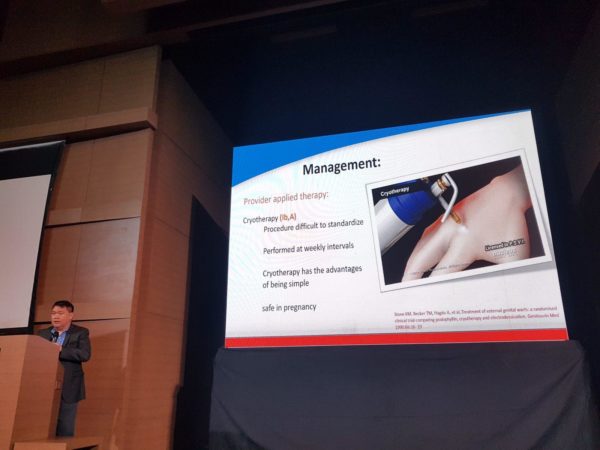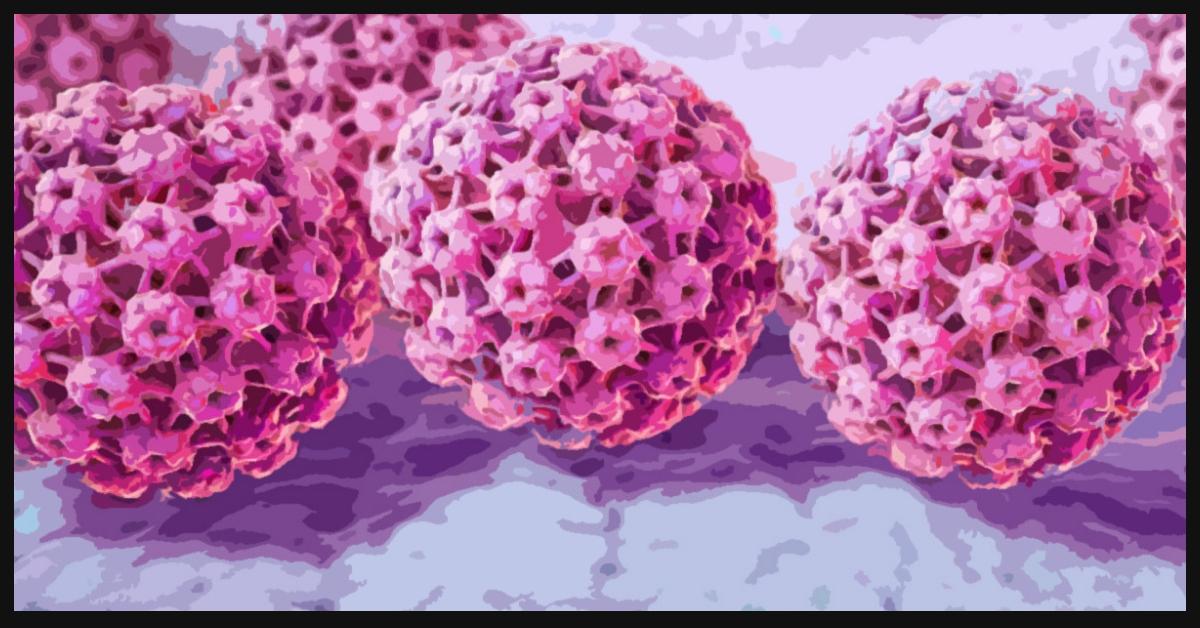•Negative public attitudes toward people with sexually-transmitted diseases (STDs) may discourage them from seeking medical care.
•Studies have established a troubling link between human papillomavirus (HPV), a common STD, and cervical cancer.
•Medical professionals play an important role in ensuring the overall psychosocial health of patients with STDs.
The culture of stigma and discrimination against people with sexually-transmitted diseases (STDs) still exists today — and in the Philippines, it could be making the STD problem worse.
According to Dr. Gilbert Yang, a dermatologist and venereologist, this “shame on you” attitude is a serious issue in an age of rising STD cases, vaccine distrust, and patients who refuse to have themselves checked.
Last March 5, Yang delivered a lecture to doctors and medical students at The Medical City Plaza on specific types of STDs. There, he emphasized how the psychosocial impact of STDs negatively affects STD patients.

“Distortion of the mind happens. Having any kind of STD creates a psychological state of depression. It weakens the personality and reduces the capability to solve problems,” Yang said, referring to how cultural shaming and stigmatization discouraged Filipino patients from talking about their condition.
According to a 2014 study, individuals diagnosed with STDs reported “experiencing shame, anxiety, embarrassment, isolation, fear of rejection, and fear of not being sexually desirable.” The researchers surveyed 89 female patients who were diagnosed with various STDs. They took note of “the stigma of having a venereal disease, the uncertain success of the treatment and the recovery time, together with the risk of infecting others interfere with the patients’ quality of life.”
‘No advocacy groups for HPVs’
As of December 2018, there have been 62,029 confirmed human immunodeficiency virus (HIV) cases reported to the HIV/AIDS & ART Registry of the Philippines (HARP). Shockingly, 81 percent (50,357) of these cases were from January 2013 to December 2018.
There are several advocacy groups that champion the treatment of HIV.
However, Yang noted that very few groups, if any, are focusing on one of the most common STDs: HPV, or human papillomavirus.
“Syphilis, genital warts, herpes, genital herpes, and gonorrhoea are more common than HIV. HIV is a big thing. But don’t forget all the other non-HIV-related conditions,” Yang opined.
Often interchanged with one another, HPV is very different from HIV.
HPV is a non-enveloped, double-stranded virus that may manifest in the hands, feet, or genitals.
“In recent years, HPV has gained traction as an important public health problem because of its association with cervical cancer,” said Yang.
According to a 2018 report from the Institut Catalia d’ Oncologia HPV Center, cervical cancer is the 2nd leading cause of female cancer in the Philippines. “About 7, 190 new cervical cancer cases are diagnosed annually in the Philippines, as per estimates for 2018,” as stated in the report.
The impact of the Dengvaxia controversy
The rising number of cervical cancer cases prompted the Philippine government to roll out the HPV vaccine years ago.
But with the rise in public distrust in vaccines due to the 2017 Dengvaxia incident, it may take some time for Filipinos to immunize themselves against HPVs.
Yang explained that condoms are another form of protection, as they safeguard the user against HIV and bodily-fluid transfer.
“It protects against most STDs, because less surface area is exposed,” he said.
Yang also addressed the challenge of promoting condoms in a predominantly-religious society.
“What if it’s against their religious belief? [Doctors should] tell them that they are promoting the use of condoms so that patients won’t get the infection, and not transmit it to anyone else. Patients can use any condom, as long as it is not expired, and there’s no hole in it,” he explained.
Yang added that if one has tested positive for HPV, there is still hope for treatment.
Available treatment options

At present, there are two types of treatments for HPVs: doctor-applied therapy and patient-applied therapy.
Cryotherapy, pap smears, trichloroacetic acid, and electrosurgery fall under doctor applied-therapy.
Meanwhile, patient-applied therapy comes in the form of topical creams. Pharmaceutical company Glenmark Philippines released the latest topical cream, Imiquimod (Imiquad) 5 % cream, on the day of the lecture.
According to the product details, the Imiquad 5% cream is an anti-viral topical immune response modifier that stimulates the body to identify and destroy HPV-infected cells by activating the body’s natural immune cascade.
“It’s more affordable than the innovator, and it’s therapeutically equivalent,” said product manager Chrissy Bonifacio. “We are at par with the efficacy as well.”
One limitation of the Imiquad, however, is that it has yet to be confirmed as safe for pregnant women.
Aside from the launch, Glenmark Philippines also sponsored Yang’s lectures on genital warts and other STDs.
Advice to doctors
Societal stigma and discrimination against STD patients do not make it easy for patients to confide to doctors about their sexual histories.
But Yang advised doctors and medical students that reacting should not be their first priority. While it may be difficult to change perceptions and stigmas, doctors and aspiring STD specialists play an important role in ensuring the overall psychosocial health of their patients.
“Remember, you’re there to listen. As a doctor, you just don’t tell the patient what to do. You have to inform, explain and advise. The most ‘teachable’ moment for a patient is during the consult.” –MF
Cover photo: Kateryna Kon/Science Photo Library via Getty Images
References
- https://www.doh.gov.ph/sites/default/files/statistics/EB_HIV_December_AIDSreg2018.pdf
- https://www.giog.it/materiale_cic/728_XXXV_6/6297_impact/article.htm
- https://www.avert.org/professionals/hiv-social-issues/stigma-discrimination
- www.hpvcentre.net/statistics/reports/PHL.pdf
- https://www.vaccineconfidence.org/filipino-vaccine-confidence-fades-following-dengvaxia-scare/
Author: Angelica Y. Yang
Angelica Y. Yang is a fourth-year Journalism student at the University of the Philippines (UP) Diliman. She is also a freelance journalist who has won science journalism awards from UP and the Department of Science and Technology.







